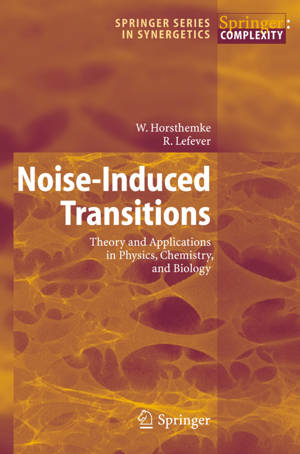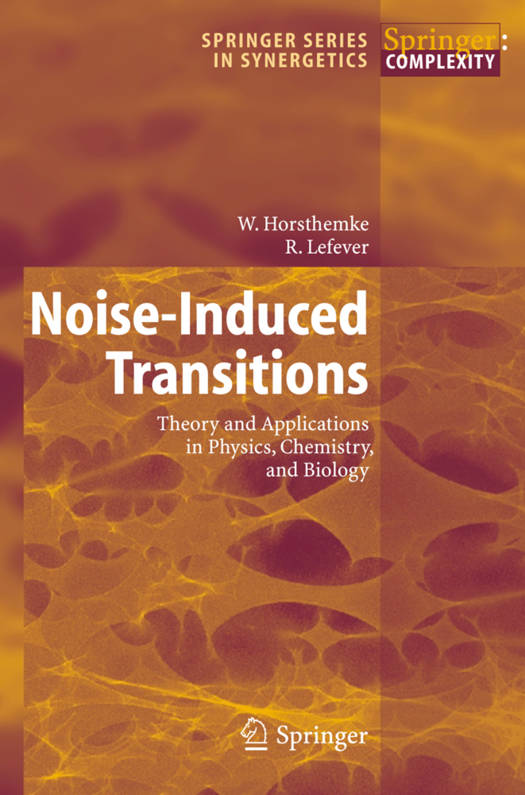
- Afhalen na 1 uur in een winkel met voorraad
- Gratis thuislevering in België vanaf € 30
- Ruim aanbod met 7 miljoen producten
- Afhalen na 1 uur in een winkel met voorraad
- Gratis thuislevering in België vanaf € 30
- Ruim aanbod met 7 miljoen producten
Zoeken
Noise-Induced Transitions
Theory and Applications in Physics, Chemistry, and Biology
W Horsthemke, R Lefever
€ 105,45
+ 210 punten
Uitvoering
Omschrijving
The study of phase transitions is among the most fascinating fields in physics. Originally limited to transition phenomena in equilibrium systems, this field has outgrown its classical confines during the last two decades. The behavior of far from equilibrium systems has received more and more attention and has been an extremely active and productive subject of research for physicists, chemists and biologists. Their studies have brought about a more unified vision of the laws which govern self-organization processes of physico-chemical and biological sys- tems. A major achievement has been the extension of the notion of phase transi- tion to instabilities which occur only in open nonlinear systems. The notion of phase transition has been proven fruitful in apphcation to nonequilibrium ins- bihties known for about eight decades, like certain hydrodynamic instabilities, as well as in the case of the more recently discovered instabilities in quantum optical systems such as the laser, in chemical systems such as the Belousov-Zhabotinskii reaction and in biological systems. Even outside the realm of natural sciences, this notion is now used in economics and sociology. In this monograph we show that the notion of phase transition can be extend- ed even further. It apphes also to a new class of transition phenomena which occur only in nonequilibrium systems subjected to a randomly fluctuating en- vironment.
Specificaties
Betrokkenen
- Auteur(s):
- Uitgeverij:
Inhoud
- Aantal bladzijden:
- 322
- Taal:
- Engels
- Reeks:
- Reeksnummer:
- nr. 15
Eigenschappen
- Productcode (EAN):
- 9783540113591
- Verschijningsdatum:
- 1/12/1983
- Uitvoering:
- Hardcover
- Formaat:
- Genaaid
- Afmetingen:
- 156 mm x 234 mm
- Gewicht:
- 657 g

Alleen bij Standaard Boekhandel
+ 210 punten op je klantenkaart van Standaard Boekhandel
Beoordelingen
We publiceren alleen reviews die voldoen aan de voorwaarden voor reviews. Bekijk onze voorwaarden voor reviews.











